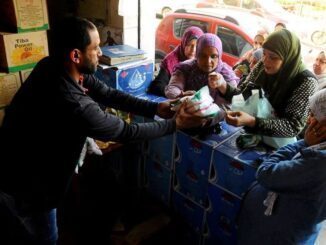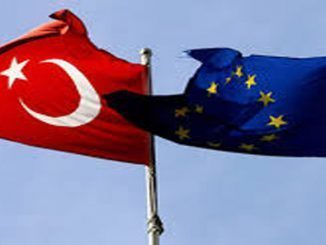
Speaking at a press conference in Berlin, Schulz called on EU member states to take concrete steps to share the burden of Greece and Italy, based on an agreement reached by the European Council in September 2015.
“When we look at practical examples of implementing the legal framework for relocating 160,000 refugees, so far I believe nearly 5,000 people have been relocated. That has failed to pass the test. This is regrettable. This is also very worrying,” he said.
Schulz said as EU’s decisions largely remain on paper and not implemented, refugees continue to pay a high price.
EU member states agreed in September 2015 to relocate 160,000 asylum seekers mainly from Greece and Italy, but the reluctance of various member states to take in more refugees have left the plan in limbo.
Poland and Hungary have been leading the opposition to mandatory quotas for the relocation of refugees among the EU member states.
Schulz have underlined the importance of solidarity among EU members to share the refugee burden, and also renewed his support for the EU-Turkey agreement to address the refugee crisis.
He played down recent tensions between EU and Turkey and said Ankara has so far honored its commitments under the deal, and would continue to do so.
On the widely debated visa liberalization issue, Schulz argued that this could only be possible, once Turkey meets all the criteria and also bring its anti-terrorism legislation in line with the EU standards.
“We are saying yes to visa liberalization in principle, but only if the conditions are fulfilled,” he said.
“I hope that there would be a new initiative in Turkish parliament to reform this anti-terrorism law once the state of emergency comes to an end,” he added.
Visa liberalization has been one of the key promises of the EU as part of a deal hammered out in March to enhance EU-Turkey cooperation in addressing the refugee crisis and to accelerate Turkey’s EU membership talks.
Turkey has so far met most of the requirements for visa liberalization, but the EU’s demands for change in Turkey’s anti-terrorism law have led to a deadlock in negotiations.
The foiled July 15 coup attempt in Turkey and Ankara’s declaration of a three-month state of emergency in the aftermath of the events has led to further uncertainty about the future talks on visa liberalization. Ankara insists that due to the serious terrorism threat, it will not make any changes.
EU-Turkey agreement constitutes one of the main pillars of EU’s strategy to address the worst refugee crisis since World War II.
Since the agreement came into force in March, number of illegal crossings through the Aegean Sea has significantly reduced.
The EU-Turkey deal provides a 6 billion euro ($6.8 billion) aid package until the end of 2018 to help Turkey care for millions of refugees, most of whom escaped civil war in neighboring Syria.
Under the deal, Ankara has committed to take measures to strengthen the fight against human smugglers. Turkey has also promised to accept return of all migrants who illegally crossed into Greek islands.



